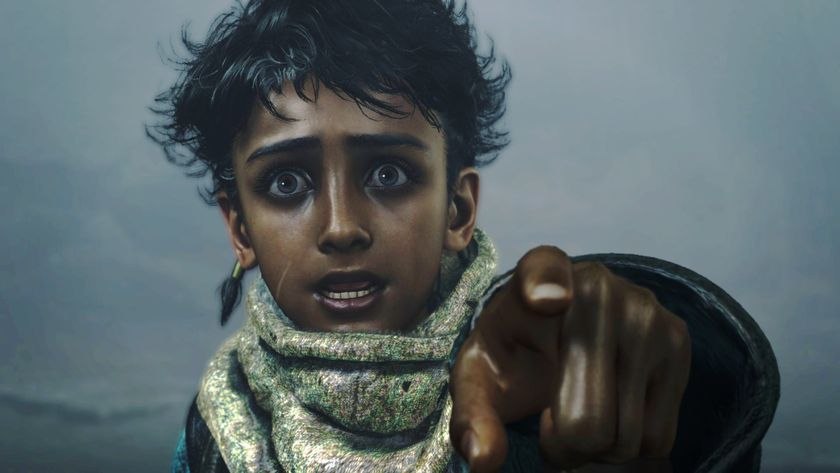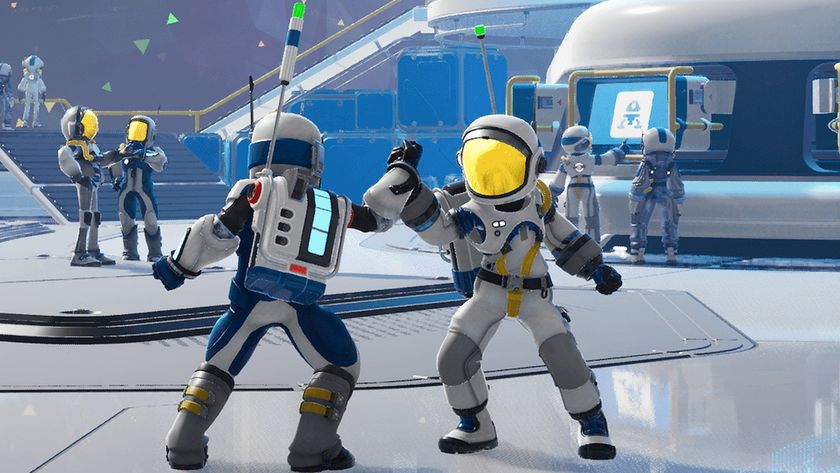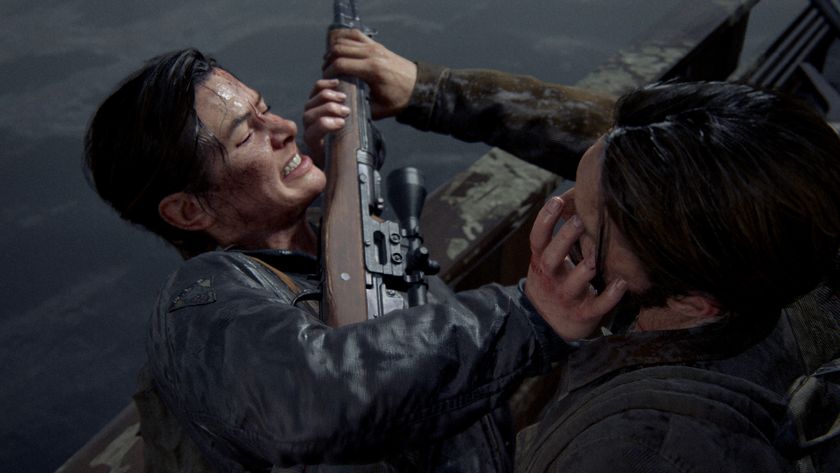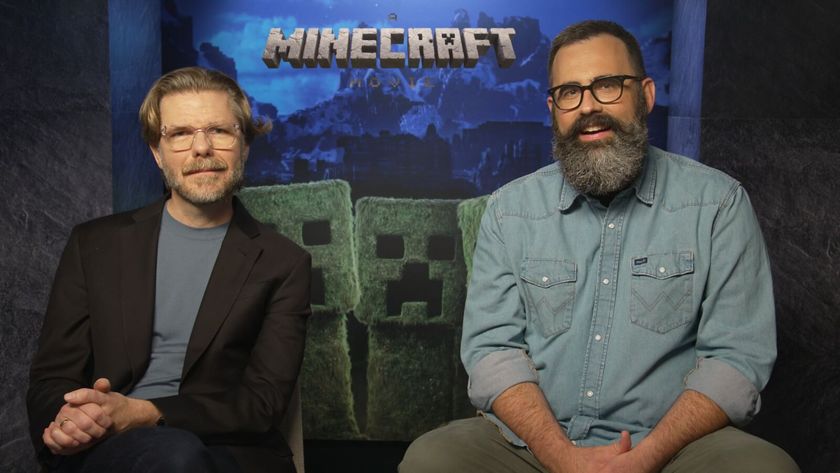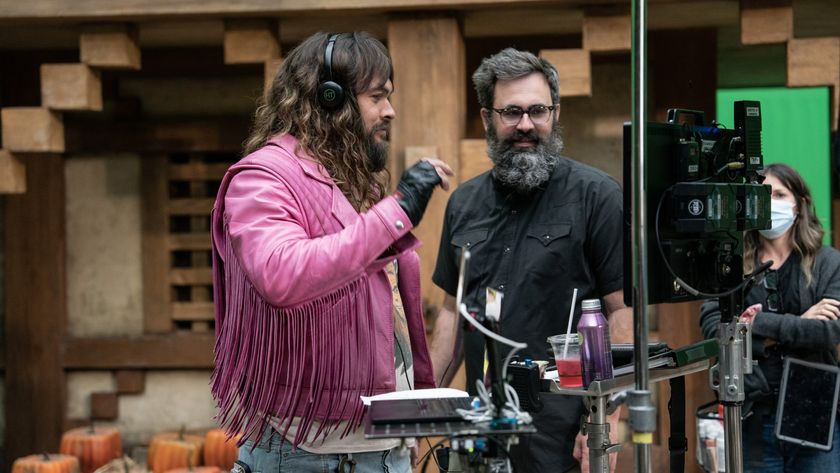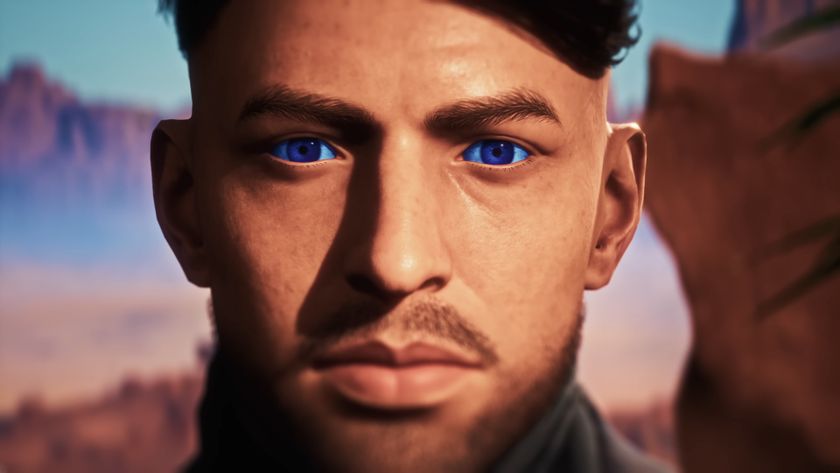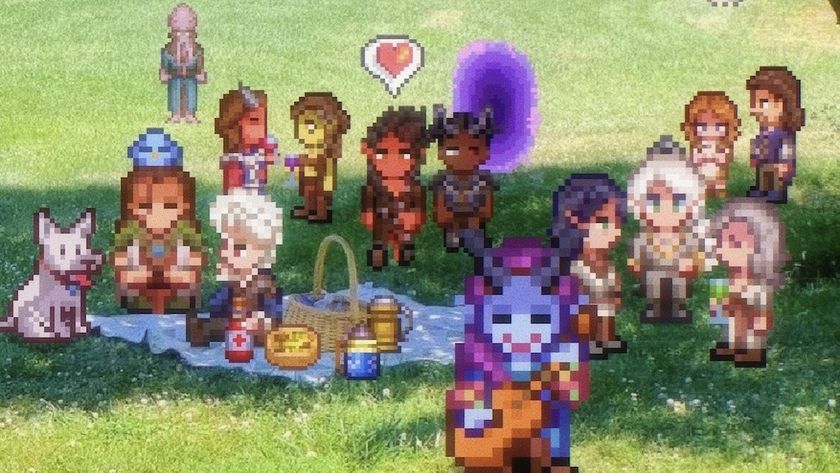Magrunner: hands-on with the Portal-meets-Lovecraft platform puzzler
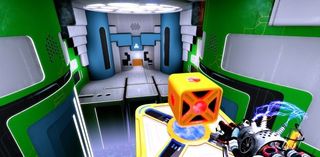
Bored game designers need to be careful about what they doodle. Somewhere in the margins of the Magrunner design doc, a careless code drone started scribbling some tentacles. Those feelers grew, encasing the fiction, choking the corridors, binding the blocks. Consuming. What was a Portal-style block-fumbling puzzle game became a clash of Valve's design and H.P. Lovecraft's fiction.
It begins in a suspiciously clean environment. A more colourful and shapely version of Portal's testing environment, with layered, bright walls and transparent walkways. It's a handsome aesthetic, and the colour is a necessary addition that the game's mechanic of attraction and repulsion needs to work. Left mouse colours cubes and certain panels of the environment red, right mouse does the same with blue. Two objects of the same colour will attract (bafflingly), and opposites will repel. You can also reset things to a neutral state.
The first puzzle I meet has a panel on the ground, directly beneath a button, and a loose block. All I need to do is place the block on the panel, charge the panel with red and the block with blue. It zooms upwards and hits the button. The next puzzle sends the block flying in an arc, allowing me to reach an otherwise unreachable ledge by riding it there.
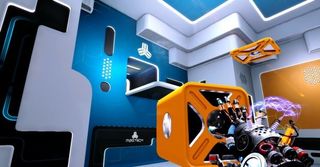
As the hands-on continues, I'm led through the world in a series of level-skipping lurches, watching as the facility corrodes. I can't tell you if there's a nice difficulty curve because mechanics pop into existence without warning in this accelerated peek. The next level, three levels into my game but somewhere the middle of the full thing, is a broken, manky hole of a room. I can see stars through cracks in the walls. I'm instructed to click anywhere that won't react to my powers and a dog pops into existence. A magnetic, robot puppy that can stick to walls. I am not making this up.
The dog's magnetism is defined according to the button that you press to spawn him, and can be used to drag platforms and move blocks. This room has a platform that I raise by clicking a nearby wall and moving the puppy up it. The platform exposes a lower area for me to drop into, a small cubicle where all the walls can be state switched. A few fiddles sees the walls open up. All the sides are pushing each other out. That's kind of neat. The floor drops. Below is a cube that I manage to manipulate up to me by popping the pup into existence and having it stick to him. Each click drags the cube up the walls, closer to me. The ultimate goal of this level is to destroy a turret up in the ceiling, but with time running short I'm prodded to skip to the next display of magnetic mastery. The solution remains a mystery.
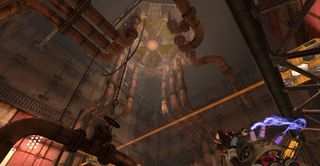
I'm flung far into the game, where the clean lines of the facility have melted away. I'm in a star-filled void. Ahead are two intersecting circles floating in the air, each with platforms attached. Floating in the background is an unidentifiable collection of grim creatures. Whatever this level offers as a challenge was not made clear. The mechanics involve swapping the polarities of the platforms, to push them around the floating circles. The creatures could be killed, but the rush of the demo meant it was time to end, and I'm not entirely comfortable with telling you too much about it anyway. It was always obvious that the longer it plays out, the deeper into Lovecraft's realm we'd fall, but what affect that really has on the game has been kept from me.
I am intrigued, but with some caution. Games that are a pile of shifting puzzles and dimensional mechanics need to drip-feed their ideas a little, which is something I never had the luxury of in this instance. But there were a few moments that crackled with serendipity, and the promise of more magnetic mind-twisters - bigger cubes for more power, multiple cubes for complexity - attracts a good deal more than it repels.
The biggest gaming news, reviews and hardware deals
Keep up to date with the most important stories and the best deals, as picked by the PC Gamer team.
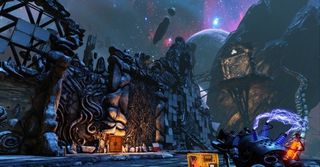
Developer: 3AM Games
Publisher: Focus Home Interactive
Release: TBA 2013
Link: magrunner.com



